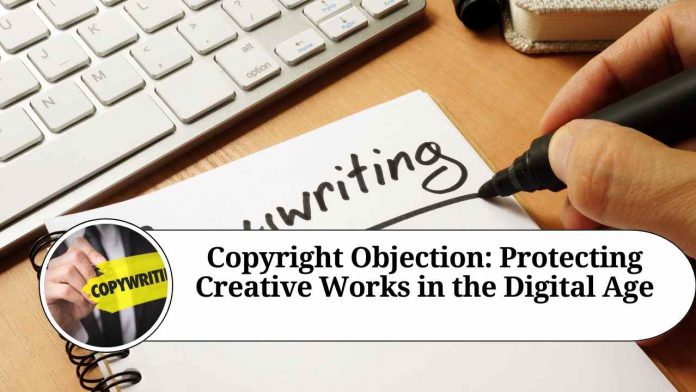Introduction
In today’s digital age, where creative content is easily accessible and shareable, protecting one’s original works has become increasingly crucial. Copyright registration plays a vital role in safeguarding the rights of creators, providing legal protection against unauthorized use, reproduction, and distribution of their works. In this blog post, we will explore the significance of copyright registration and why it is an essential step for creators and artists.
Understanding Copyright
Copyright is a legal concept that grants exclusive rights to creators and authors over their original works, such as literary, artistic, musical, or dramatic creations. It encompasses a wide range of creative expressions, including books, films, music, photographs, paintings, sculptures, software, and architectural designs. Copyright protection grants the creator the right to control the reproduction, distribution, adaptation, and public display of their work.
Copyright protection is automatic as soon as an original work is created and fixed in a tangible medium, such as writing it down or recording it. However, while automatic protection exists, registering copyright provides several additional benefits and strengthens the legal standing of the creator.
The Importance of Copyright Registration
- Public Notice of Ownership: Registering a copyright provides public notice that the work is protected, thereby alerting others to the creator’s rights. It serves as evidence of ownership and can discourage potential infringers from using the work without permission.
- Legal Protection and Deterrence: Copyright registration strengthens the creator’s legal standing in case of copyright infringement. It allows the creator to file a lawsuit and seek damages, statutory damages, or attorney fees in a court of law. Having a registered copyright can act as a deterrent, as infringers are more likely to take the claim seriously and may think twice before using copyrighted material without authorization.
- International Protection: Copyright registration in one’s home country may provide certain protections, but international copyright protection can be complex. However, many countries have reciprocal agreements and treaties, such as the Berne Convention, which provide copyright protection to foreign works. Registering your copyright in your home country can facilitate the process of securing protection in other countries.
- Presumption of Ownership and Validity: Copyright registration establishes a presumption of ownership and validity of the copyright in a court of law. This can be beneficial if a dispute arises or if the creator needs to enforce their rights. It places the burden of proof on the infringer to demonstrate that the copyright is invalid or does not belong to the registered owner.
- Licensing and Commercial Opportunities: Copyright registration enables creators to license their works to others, granting them permission to use the copyrighted material in exchange for compensation. It opens up opportunities for commercialization, collaboration, and monetization of creative works, providing creators with additional revenue streams.
How to Register a Copyright
Registering a copyright is a relatively straightforward process, and the specific requirements may vary by country. In many jurisdictions, including the United States, copyright registration can be done through the copyright office’s online portal. Typically, it involves submitting an application form, paying a fee, and providing a copy or description of the work being registered. It is advisable to consult the copyright office or seek legal advice to ensure compliance with the relevant procedures and regulations.
Other Related Blogs: Section 144B Income Tax Act
Conclusion
Copyright registration is a vital step for creators and artists to protect their intellectual property rights and assert their ownership over original works. While copyright protection is automatic upon creation, registering a copyright offers enhanced legal benefits, including public notice, legal protection, international recognition, and licensing opportunities. By taking proactive steps to secure their rights, creators can safeguard their creativity, promote a thriving creative industry, and ensure that their works are used in accordance with their intentions.
Other Related Blogs: Section 144B Income Tax Act
Frequently Asked Questions (FAQs)
Q: What is copyright registration?
A: Copyright registration is the process of formally registering your original creative work with the appropriate copyright office. It provides legal evidence of ownership and establishes a public record of your copyright claim.
Q: Is copyright registration required for copyright protection?
A: No, copyright protection is automatic upon the creation of an original work. However, registering your copyright offers additional legal benefits and strengthens your position in case of infringement.
Q: What can be copyrighted?
A: Copyright can be obtained for various original works, including literary works, music, art, photographs, films, software, architectural designs, and more. It covers a wide range of creative expressions.
Q: How long does copyright protection last?
A: Copyright protection generally lasts for the life of the author plus an additional period, typically 50 to 70 years after the author’s death, depending on the jurisdiction.
Q: Can I register a copyright for multiple works together?
A: Yes, in some cases, you can register a collection of related works under a single copyright registration. This is particularly useful for things like albums, anthologies, or websites with multiple pages.
Q: Can I register a copyright for works that are not yet finished?
A: Copyright registration is available for both completed and unpublished works, as well as works in progress. However, it is important to note that changes or additions to the work after registration may require a new registration.
Q: How long does it take to register a copyright?
A: The processing time for copyright registration varies depending on the copyright office and the volume of applications they receive. In some cases, it can take several months to receive a registration certificate.
Q: Do I need a lawyer to register a copyright?
A: It is not mandatory to hire a lawyer to register a copyright, as the process can typically be completed by the creator. However, consulting with a copyright attorney can provide guidance and ensure that you fulfill all legal requirements.
Q: Can I register a copyright internationally?
A: Copyright protection is generally territorial, meaning it is granted in the country where the work is created. However, many countries have reciprocal agreements and treaties that extend copyright protection to foreign works. It is advisable to consult the copyright office or seek legal advice to understand the specific requirements for international copyright registration.
Q: What happens if someone infringes my copyrighted work?
A: If someone infringes your copyrighted work, having a registered copyright strengthens your legal standing. You may be able to pursue legal action and seek remedies such as damages or injunctions to stop the infringement.
Q: Can I make changes to my copyrighted work after registration?
A: Yes, you can make changes to your copyrighted work after registration. However, substantial changes may require a new registration. It is recommended to consult a copyright attorney for guidance on specific situations.




















